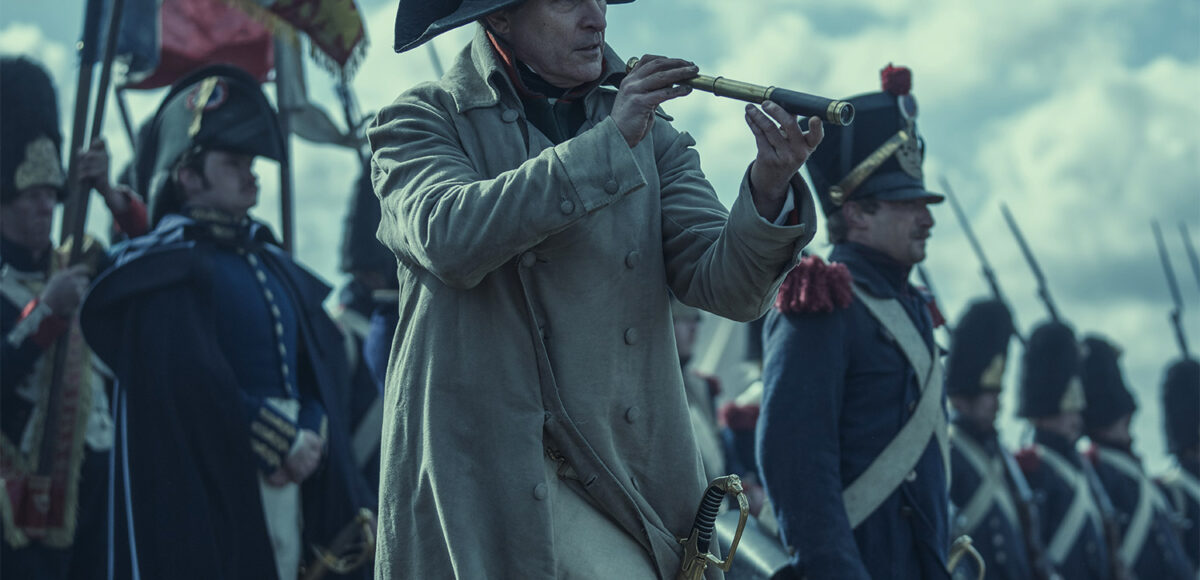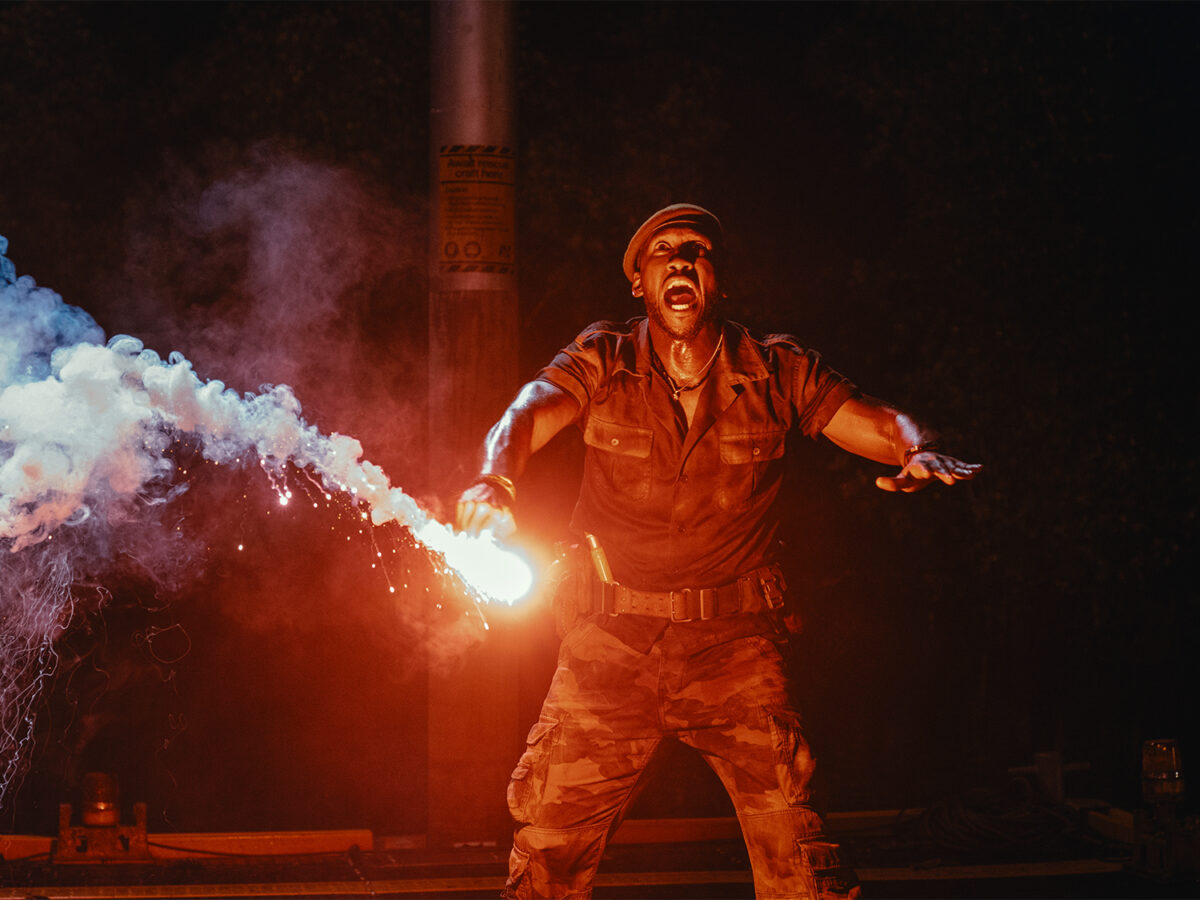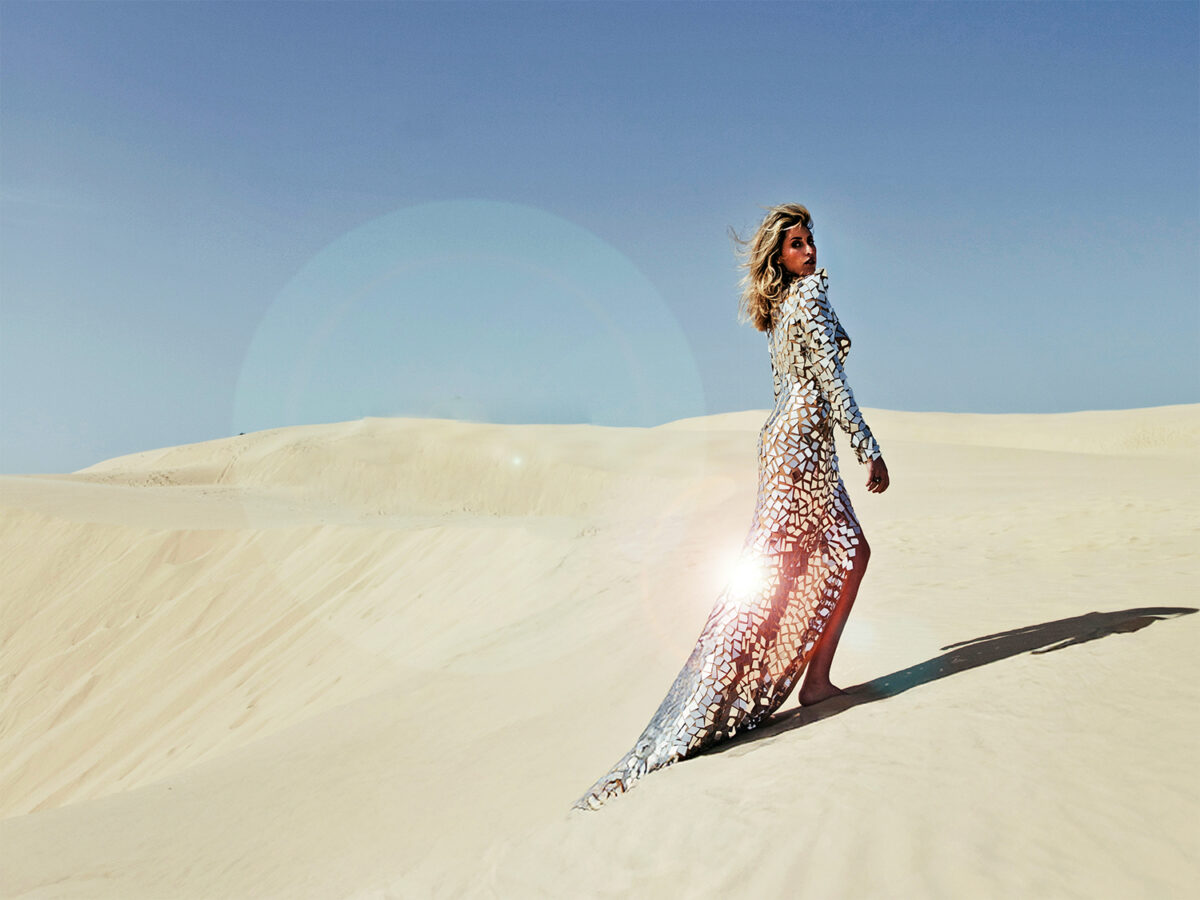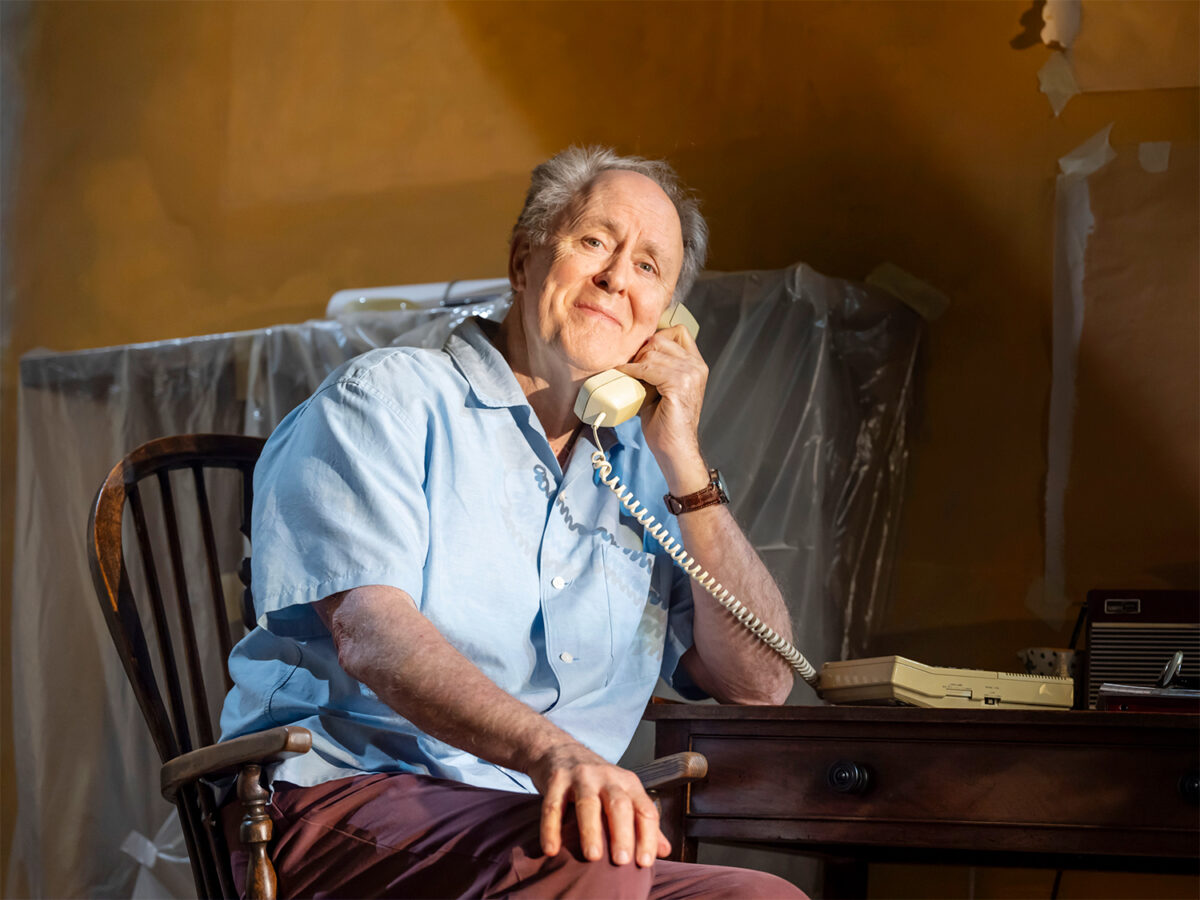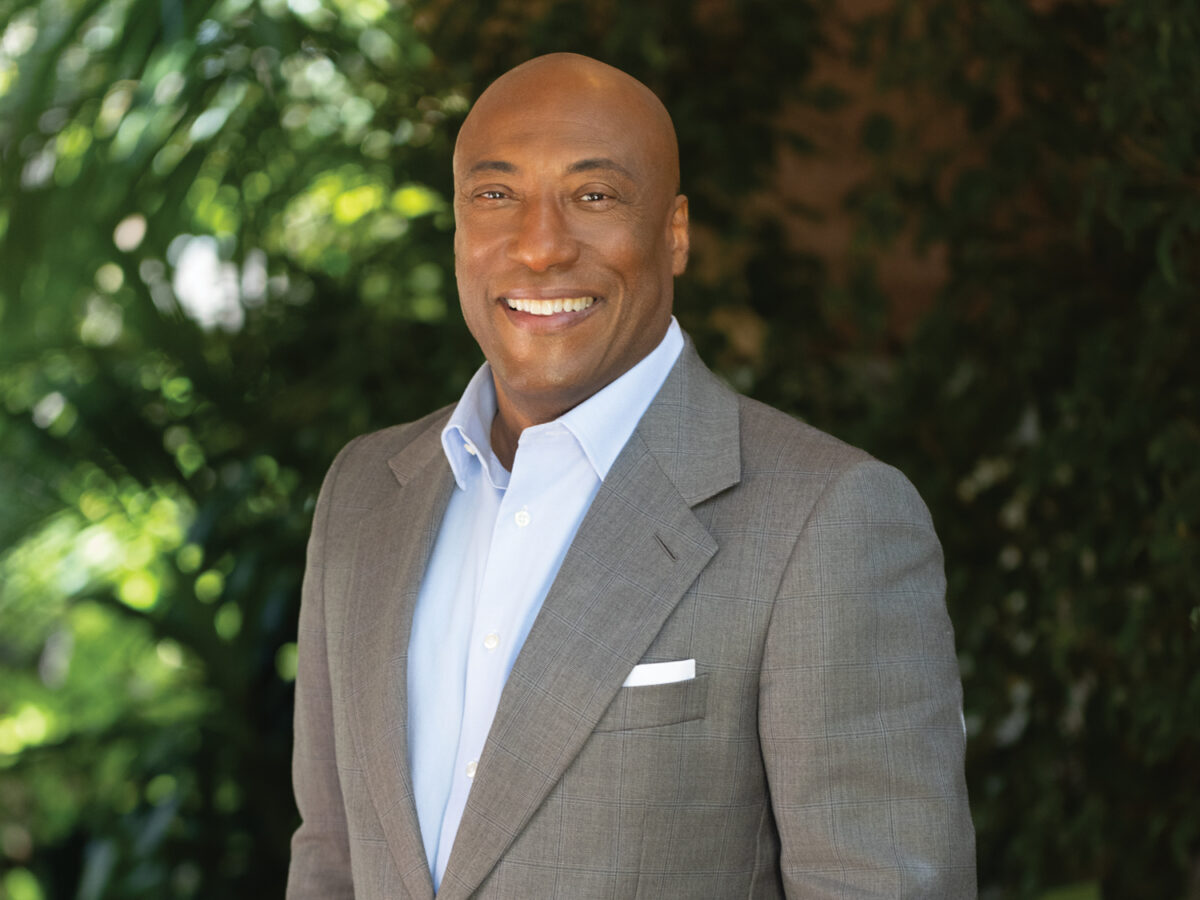Ridley Scott has taken on the imperial task of telling the story of Napoleon Bonaparte in all its massive glory. He has an amazing ability to take on large-scale stories and give them the scope they deserve as he did in “Gladiator” and “Blade Runner.” In some ways, “Napoleon” dwarfs them all, tackling a biography of scope and scale that encompasses French history from the revolution through the defeat at Waterloo. Make no mistake, however, Napoleon’s history is also his influence over France throughout the 19th century, either because of him or his nephew Napoleon III. So how did Scott tackle this seemingly insurmountable task? He did it in bits and pieces at a time, framed by a love story that both weakened and strengthened his narrative.
To understand how far Napoleon came in his lifetime is to take into account his Corsican origins. Corsica, an island off the Mediterranean coast of France, had been Italian until 1755 when it fell into French hands. Ignoring the nobility of its Italian origins, the French viewed it as a home to renegades, fishermen and criminal gangs. But, like anyone not born into French nobility, there were only two paths to social acceptance, the priesthood or the military. It was in the military where Napoleon immediately showed promise and he rose steadily during the revolution of 1789, guided by his hatred of the aristocracy.
Brilliant military success in Austria and Egypt (visit the Louvre and you will see the vast spoils of his Egyptian campaign) brought him to the attention of leaders tired of Robespierre and his increasingly bloody reign of terror. The overthrow of Robespierre in 1799 brought Napoleon into a triumvirate of power called the Consuls. It wasn’t long before he tired of sharing power and soon maneuvered himself into position as First Consul and, not long after, self-declared Emperor.
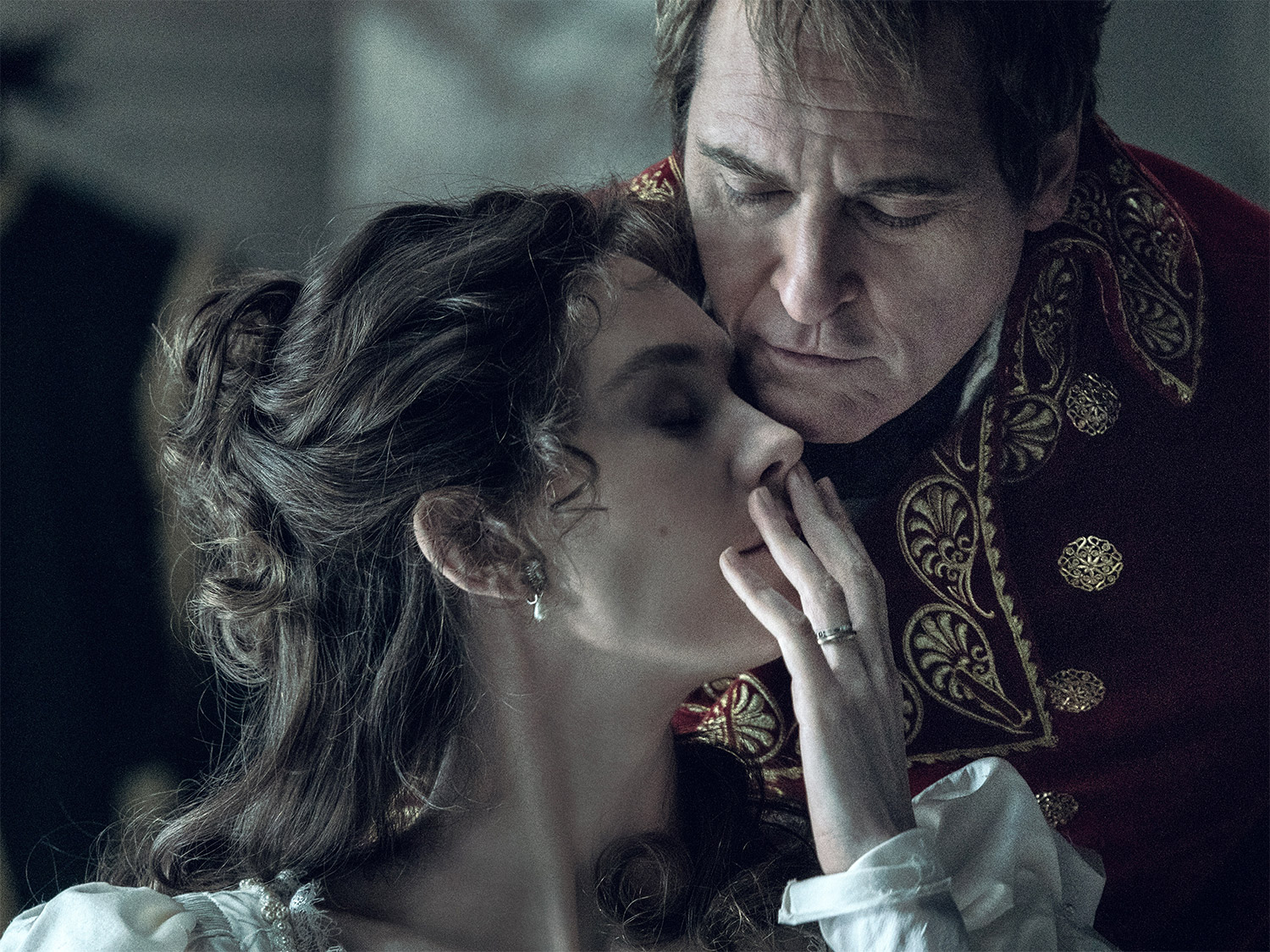
Photos courtesy Aiden Monaghan/Apple Original Films and Columbia Pictures
Scott has wisely chosen to highlight only a few of Napoleon’s 50 battle successes with chyrons indicating time and place. Perhaps no one would have been able to illustrate Napoleon’s genius at battle, his ability to take on superior forces and subdue them with his analytical skill and leadership over his troops. Observing Napoleon in the field as he positions his forces for maximum effect does not come close to characterizing the skill of a man who has been deemed one of the most important military geniuses of all time, reminiscent of Julius Cesar, Hannibal and Alexander the Great. Listening to his discussions of why he chose certain strategies or who he targeted gives some idea but it’s not enough to explain his two greatest blunders, the invasion of Russia and his final battle at Waterloo. No doubt Napoleon’s out-of-control ego had much to do with this because he ignored the advice of one of his generals when it came to his continued assault on Russia. With Waterloo, his blunder in inexplicably delaying the attack for a crucial 24 hours that would have surprised the English and forced them into a retreat. (This piece of information, absent from the film, can be found at the Wellington Museum in London.)
Scott chose the Napoleon and Josephine love story as a soft framework to his overall story. Napoleon’s love for Josephine has been memorialized in books, songs and movies. Unfortunately, focusing on Napoleon the lover trivializes Napoleon the conqueror. New facts, or at least new to me, are explored. Josephine was a widow with two children when they met (stereotypically across a crowded room). She was smitten with the power that the rapidly rising Napoleon offered; he was entranced by the sex. It is doubtful, as Ridley implies, that he cut short his Egyptian campaign to confront Josephine with her infidelity, affairs that made it into the international press. When, after many years of marriage, she was unable to bear an heir, he reluctantly divorces her and marries young Archduchess Marie Louise of Austria who does bear him an heir. Josephine, shunted off to a luxury mansion not far from Paris, remained close to Napoleon until her death.
Focusing so much on the love story, full of sound and fury, passion and calculated deliberation removes focus on what Napoleon accomplished, both good and bad. This was, obviously, directorial choice. It is possible that Scott spent so much time on this affair because the mere mention of Napoleon and Josephine conjures the haze of romance over the ages. In so doing, however, he diminishes the rest of the story that he tells without enough context. Maybe it’s an impossible task. Napoleon is many movies or at least a 12-part miniseries. There is Napoleon the conqueror; Napoleon the villain who ordered his men to destroy the Alhambra; Napoleon the archeologist who oversaw the pillaging of Egyptian artifacts; Napoleon the statesman who improved the education system, created the first central bank, the Legion of Honor and legislated religious equality for Jews and Protestants in this Catholic country. He also reinstituted slavery, something that had been abolished during the revolution, because he needed the income from the colonies to support his wars. Most of these well-known elements are left untold at the expense of the love story, a story that may be more of passion, possession and control than gauzy romantic love.
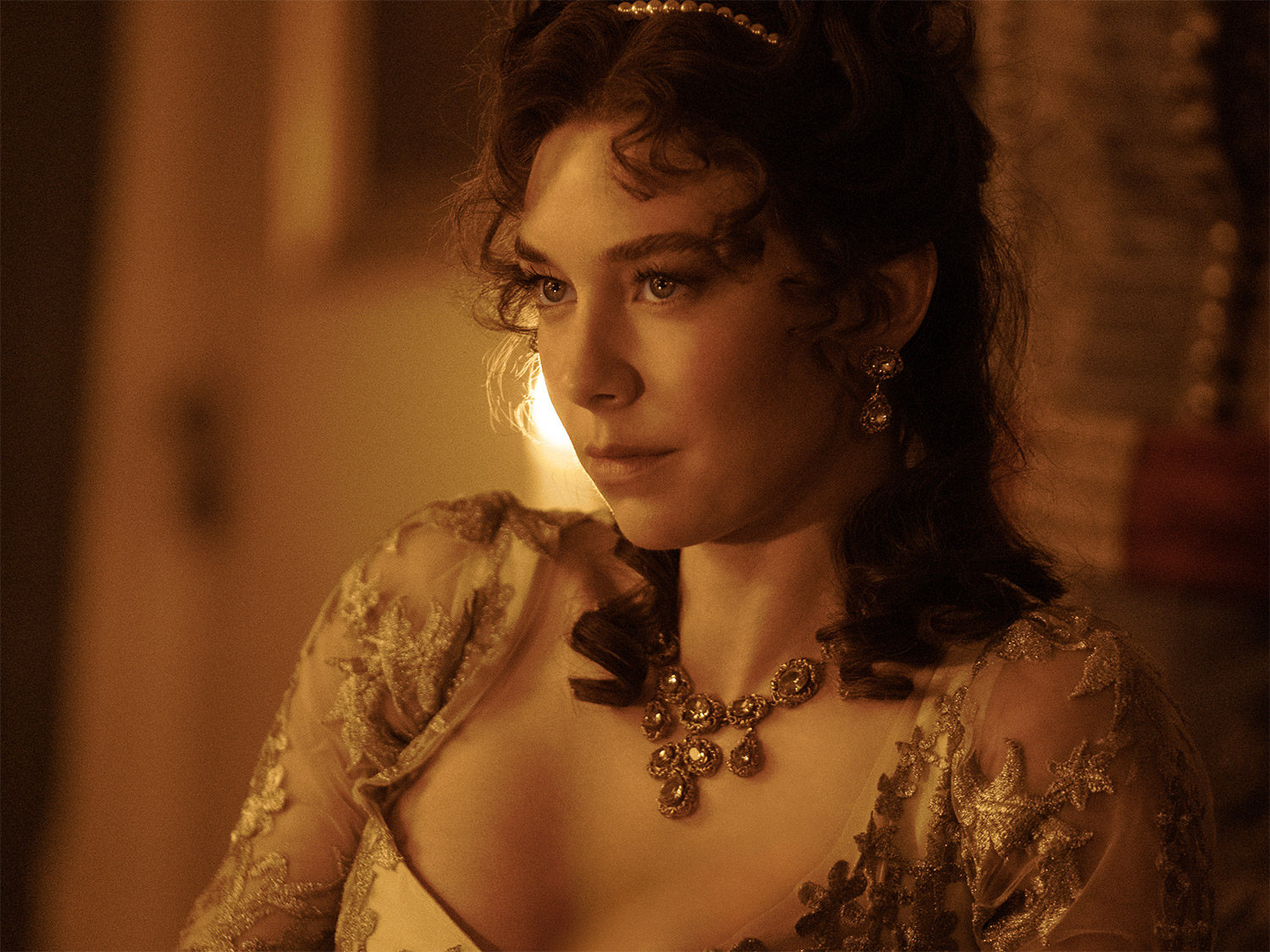
Working with what one could consider his production repertory company of longtime associates, Scott strikes gold with too many to mention, the credits alone add many minutes to this 2 1⁄2-hour movie. But his production designer, costume designers and especially his cinematographer should be singled out.
Arthur Max, the production designer of numerous Scott movies including “Gladiator,” has recreated Paris of the period from its squalor to its glory, finding many ideal sites and dressing them appropriately. His battlefields are breathtaking. David Crossman and Janty Yates (Academy Award for “Gladiator”) as costume designers added depth and breadth to the landscape of storytelling whether on the battlefield or at the coronation. It is cinematographer Dariusz Wolsky who brings the glory, glamour and guts to this film. The very scope of the battle sequences is impossible to describe but you experience every horizon and feel as though you have been transported into the combat. Many have effectively and beautifully filmed palace interiors and street scenes, but few have so convincingly filmed the scope and chaos of war.
Looking at “Napoleon” as an epic, however, is where Scott succeeds on a grand scale. His staging of the story, whether on the battlefield or in the bedroom is outstanding; he is undone by a script that, while filling in the overview, is undermined by unimaginative dialogue and the framework of a love story that doesn’t measure up to the overall history.
With a cast of thousands, literally and figuratively, it’s hard to keep track. Scott uses a veritable list of internationally renowned actors in roles that are ill-defined and come as quickly as they go. Among them are Tahar Rahim as politician Paul Barras, Ben Miles as Caulaincourt, Paul Rhys as Tallyrand and Mark Bonnar as Junot. With the exception of Tallyrand, I have no idea who these historical figures were and what their importance to this history was. The context of most of the players, with the exception of Napoleon, Josephine, Wellington and Tsar Alexander, is missing.
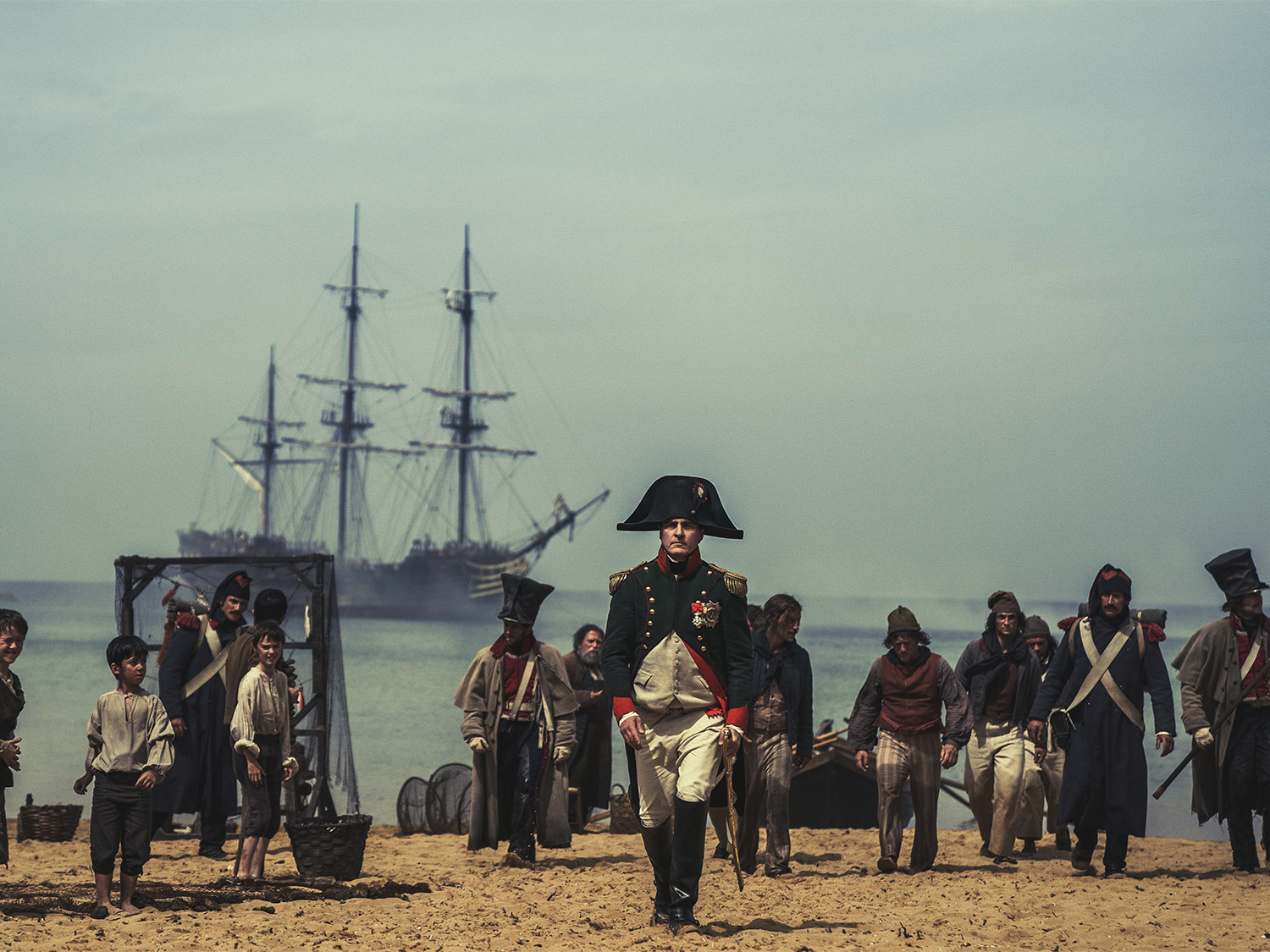
Rupert Everett plays Wellington with a stiff upper lip astride an appropriate steed. That’s basically it. Josephine, portrayed by Vanessa Kirby, fares much better, actually fares the best. She breathes life into a very complex woman who swings between self-protection, seduction, manipulation and, possibly, love. The lower register of her voice, brimming with seduction, eyes that betray and body movement that conveys reluctant surrender are all the ammunition she needs. As viewed by Scott, she is every bit Napoleon’s equal and often his master and always engaging to watch. The contempt in her eyes is covered by the purring of her voice. Regardless of the veracity of her portrayal, she is the most notable human element in this film.
Joaquin Phoenix is a different story. When communicating almost wordlessly in battle or in the Assembly he is extremely effective. His eyes, his body language, the sneer on his lips soundlessly let you know who he is and what he thinks of himself. He is mighty, he is conflicted, he is all-knowing. But when given long passages of dialogue, especially in his scenes with Kirby’s Josephine, he lacks power. His acting is flat, he lets his yelling substitute for emotion. Overall, he cannot rise to the task, not just because his acting in the role is insufficient, but also because the dialogue of the script is mundane. “Napoleon” without a convincing Napoleon is not bound for glory.
Now playing at AMC and Regal theaters. See it in IMAX to get the full effect.
Neely Swanson spent most of her professional career in the television industry, almost all of it working for David E. Kelley. In her last full-time position as Executive Vice President of Development, she reviewed writer submissions and targeted content for adaptation. As she has often said, she did book reports for a living. For several years she was a freelance writer for “Written By,” the magazine of the WGA West, and was adjunct faculty at USC in the writing division of the School of Cinematic Arts. Neely has been writing film and television reviews for the “Easy Reader” for more than 10 years. Her past reviews can be read on Rotten Tomatoes where she is a tomato-approved critic.



